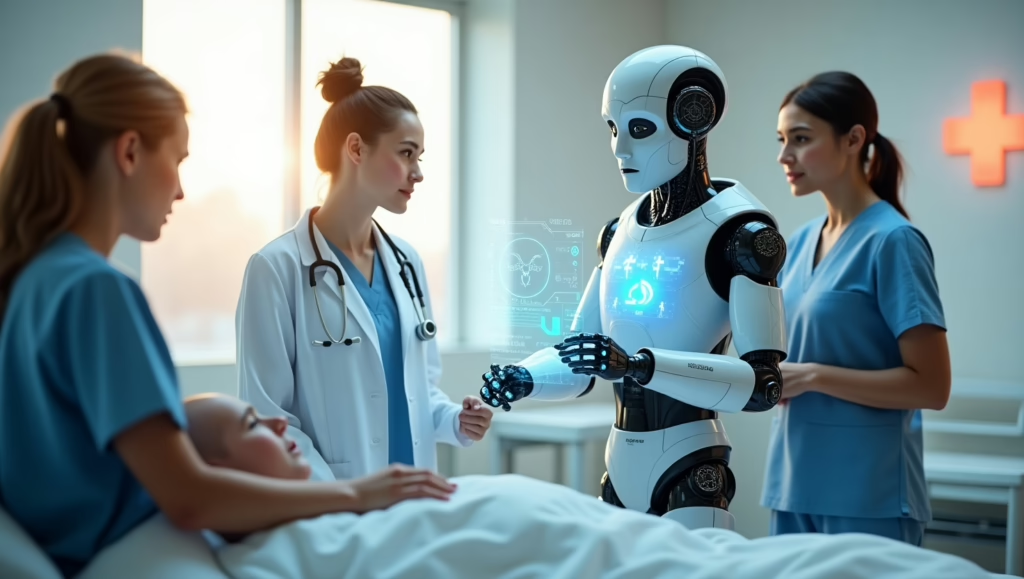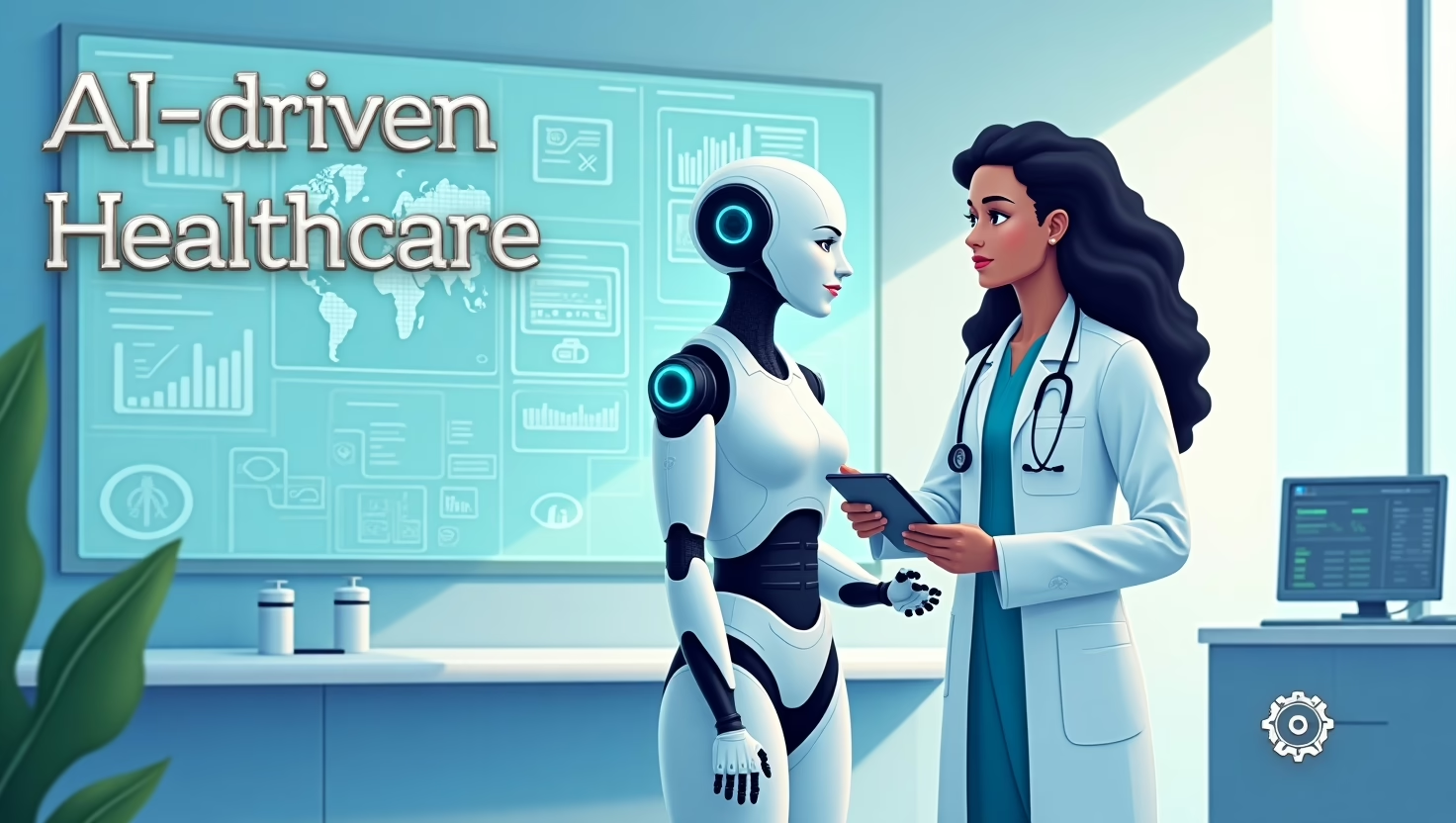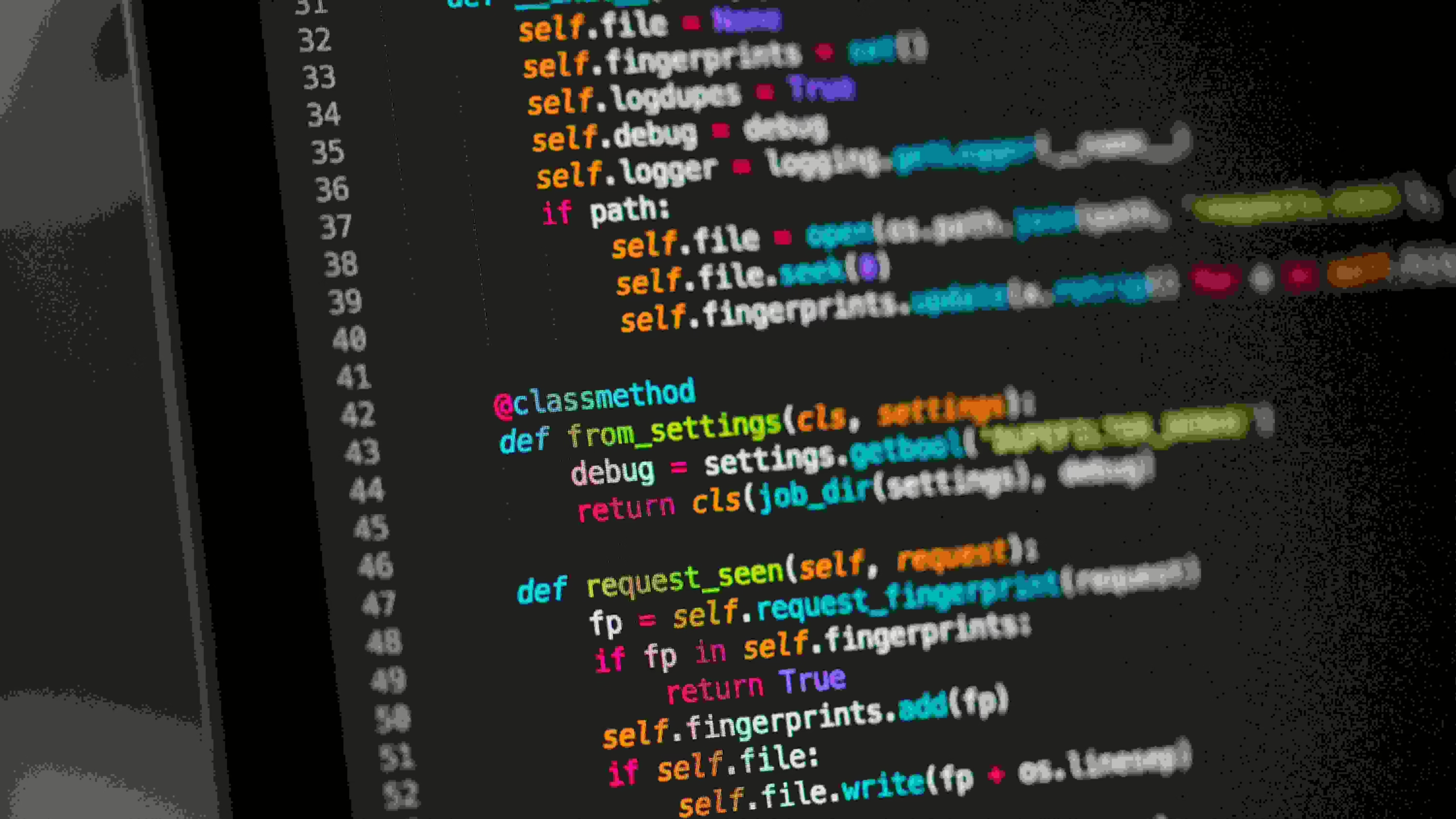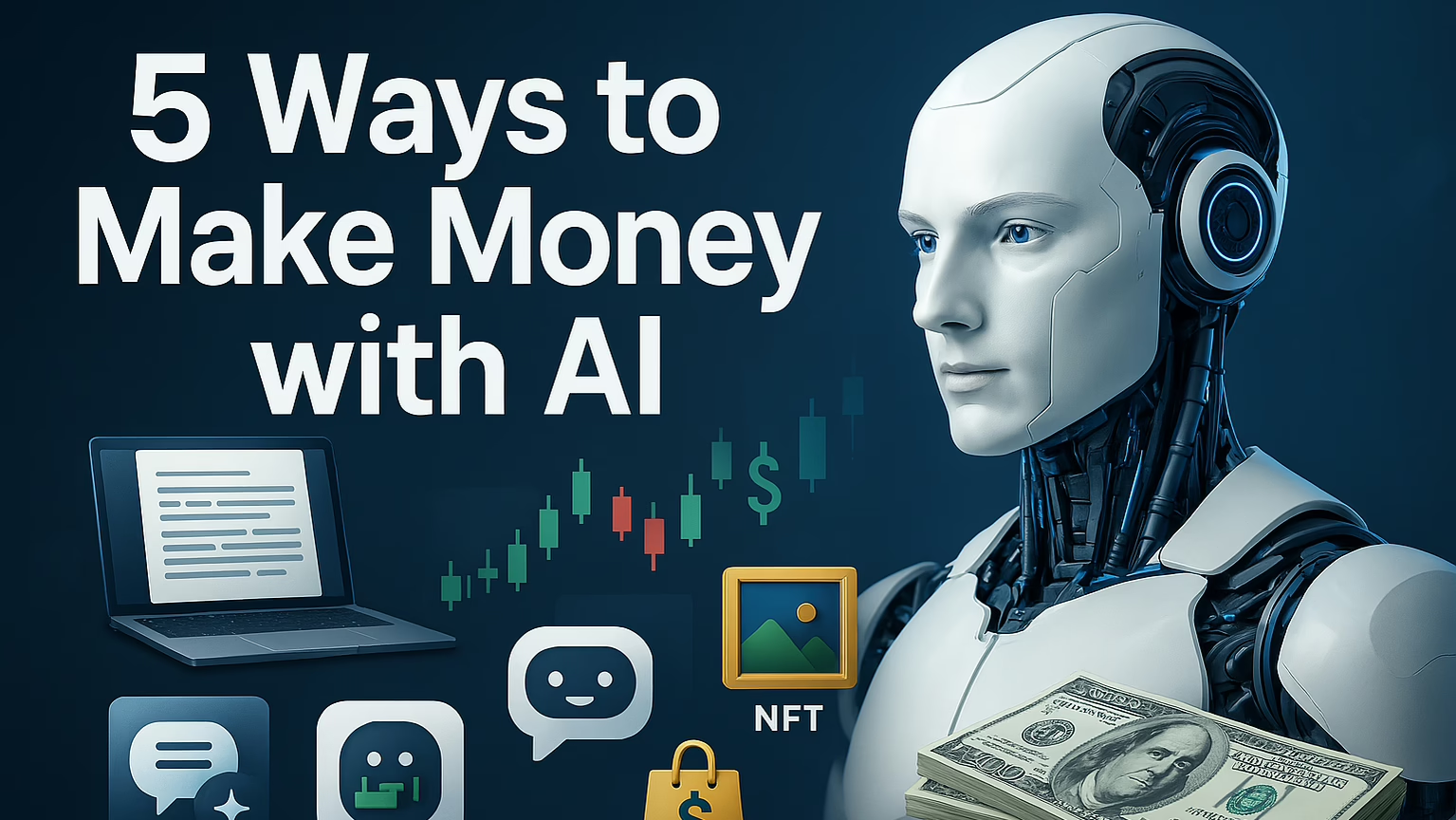It is the year 2025, and the healthcare landscape has changed beyond recognition. Artificial intelligence (AI) is no longer science fiction—instead, it is a high-powered, creative tool interwoven into the very fabric of contemporary medicine. From disease detection years before they arise to administrative effectiveness, AI in healthcare is propelling outcomes faster, smarter, and more targeted than ever.
Following are the most influential ways AI healthcare technology is transforming the healthcare sector in 2025.
1. Diagnostics: Accuracy at Unparalleled Speed
Perhaps one of the most important healthcare AI breakthroughs is its use for diagnostics. AI-enabled tools have introduced unprecedented speed and accuracy to detecting disease.
The most important developments include:

- Image Analysis: Deep learning models now scan radiology images (e.g., MRIs, CT scans, and X-rays) with precision that matches or surpasses trained experts.
- Early Detection: AI systems can identify diseases like cancer, Alzheimer’s, and cardiovascular diseases at earlier stages, enhancing treatment success rates.
- Wearable Integration: Wearable devices integrated with AI continuously track vital signs and alert anomalies, allowing real-time, proactive interventions.
2. Drug Discovery and Development
Conventional drug development is costly, time-consuming, and complicated. AI and machine learning in medicine are transforming the process by minimizing the time and expense of getting new drugs to market.
Breakthroughs include:

- Molecular Modeling: AI determines potential compounds by forecasting molecular behavior and modeling drug interactions.
- Clinical Trial Optimization: Machine learning algorithms review patient information to determine the best candidates for trials, enhancing results and minimizing failure rates.
- Drug Repurposing: AI searches vast pharma databases to identify novel uses for off-patent drugs, expediting access to treatments.
3. Personalized Medicine: Personalized Care for Each Individual
The one-size-fits-all model in medicine is being displaced quickly by customized treatment regimens driven by AI.
Use of AI in personalized medicine includes:
- Genomic Analysis: AI programs analyze complex genomics to predict a person’s risk of disease and recommend prevention or targeted treatments.
- Lifestyle Data Synthesis: AI consolidates wearables, electronic health records, and even nutrition or sleep monitors’ data to suggest personalized care approaches.
- Predictive Mental Health: Machine learning algorithms track habits to predict and preempt mental problems from arising prior to their intensity.
4. Virtual Chatbots and AI-powered Assistants in Patient Management
The growing influence of virtual assistants powered by AI is reshaping patient interactions and accessibility.
Major operations involve:
- Symptom Triage: Chatbots perform preliminary symptom evaluation, enabling patients to decide if they require professional attention.
- 24/7 Support: Virtual health assistants automate appointment scheduling, medication reminders, and follow-ups.
- Remote Monitoring: These systems aid patients after discharge, providing real-time support and monitoring recovery.
5. Improving Administrative Efficiency
Though the clinical applications of AI attract significant attention, its influence on the operational aspects of healthcare is just as revolutionary.
Operational advantages are:
- Medical Records: AI transcription software translates spoken dialogue between physicians and patients into precise records, saving time on paperwork.
- Automated Billing: Natural language processing (NLP) technology verifies accurate billing and coding, eliminating administrative mistakes.
- Resource Allocation: AI streamlines hospital staffing, inventory, and patient flow, enhancing overall efficiency and lowering costs.
Challenges and Ethical Implications
Even with these improvements, the incorporation of AI into healthcare is not without challenges.
Key considerations are:
- Data Privacy: Sensitive patient information must be protected, and AI systems are subject to stringent data protection laws.
- Algorithmic Bias: Training AI models on diverse datasets is essential to avoid biased results.
- Access and Equity: Access to AI-powered healthcare must be made equal to prevent exacerbating current inequalities.
The future of AI in medicine has to be as ethical as it is innovative.
__________________________________________________________________________________
AI is not about replacing human care—it’s about augmenting it. In 2025, health AI trends are looking toward even quicker diagnoses, better treatments, and an incredibly personalized patient experience. With machine learning in medicine ongoing, we are moving toward a time when medical decisions are supported by data-driven information and cutting-edge technology.
Saksham Kaushik is a talented writer and knowledge seeker who enjoys studying and sharing knowledge on everyday happenings, trends, and interesting facts. With keen observation skills and a curiosity-based approach, He analyzes heavy subjects into simple-to-read articles, keeping readers updated and interested. From international updates to technology breakthroughs, lifestyle suggestions, and food for thought, Saksham Kaushik provides new insights and useful information every day.




